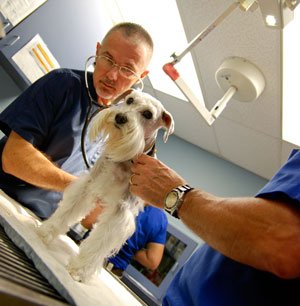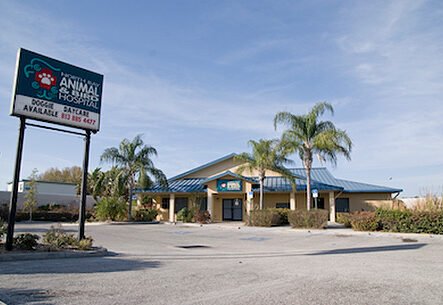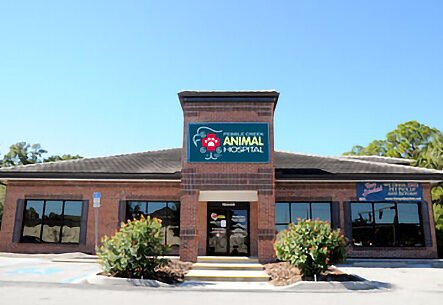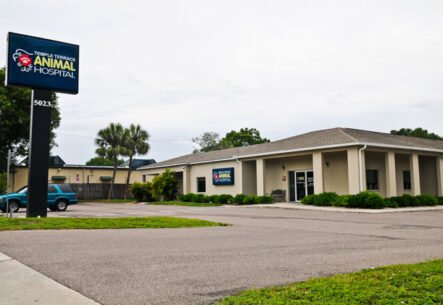A Guide To Vaccination For Your Dog

Vaccination Programs For Your Dog
Your veterinarian will recommend a vaccine program suitable for your dog. Type and frequency of vaccination will be based on your dog’s age, lifestyle (for example, indoor versus outdoor, frequency of contact with other dogs, etc.) and risk of exposure to infectious disease. The following list is a typical canine vaccination program that can be modified depending on your veterinarian’s recommendations and your preferences.
Puppies
Typical Vaccination Program
Additional Vaccinations
- Canine coronavirus
- Bordetella bronchiseptica
- Four-way Leptospira serovars:
- L. canicola
- L. icterohaemorrhagiae
- L. grippotyphosa
- L. pomona
Frequency: Six weeks of age or older, two doses administered three to four weeks apart. If vaccinated before sixteen weeks of age, revaccinate with a single dose upon reaching sixteen weeks of age.
Adult Dogs
Typical Vaccination Program
Additional Vaccinations
- Canine coronavirus
- Bordetella bronchiseptica
- Four-way Leptospira serovars:
- L. canicola
- L. icterohaemorrhagiae
- L. grippotyphosa
- L. pomona
Frequency: Annually or as determined by your veterinarian
Rabies
Frequency: A single dose at three months of age or older. A repeat dose should be administered one year later. Repeat vaccination every one to three years, depending on state law.
Common Infectious Diseases of Dogs
The following infectious diseases of dogs can be prevented or lessened by vaccination:
Rabies
Rabies is a viral disease that can affect all warm-blooded mammals, including dogs, cats, wildlife and humans. The virus infects cells of the nervous system, producing incoordination and behavioral abnormalities such as unusual aggression or withdrawal. Once the signs of rabies appear, the disease is always fatal. Rabies is usually transmitted by bite wounds, often from infected wildlife, which represent the largest reservoir of the disease in the United States. Vaccines are very effective in preventing rabies. Most states in the U.S. require rabies vaccination of dogs at oneto three-year intervals. Many states also require rabies vaccination of cats.
Canine Distemper
Canine distemper is a widespread virus that causes high mortality in dogs. Exposure is considered inevitable during a dog’s lifetime, so canine distemper vaccination is almost always recommended. Puppies and young dogs without immunity are at greatest risk. Canine distemper virus infects various tissues in the dog’s body, producing diarrhea, fever, nasal and ocular discharge, respiratory disease, appetite loss and neurologic signs such as muscular spasms and paralysis. The disease is easily transmitted and often fatal.
Infectious Canine Hepatitis
Infectious canine hepatitis (ICH), caused by canine adenovirus type 1 (CAV-1), is a worldwide disease of dogs. CAV-1 infects a wide range of tissues, including the liver (hence the name hepatitis), kidneys, spleen and lungs. Infected dogs typically develop a fever and abnormal bleeding, and experience loss of white blood cells, which are a key component of the immune system. Opacity of the eye (“blue eye”) occurs in some cases. Death, chronic hepatitis or severe illness may occur, and recovery may be gradual in nonfatal cases. CAV-1 is shed in urine and can survive outside the host for weeks or months.
Enteritis (Diarrhea, Vomiting)
Dogs are at risk of enteritis (intestinal disease) caused by two common viruses, canine parvovirus and canine coronavirus. Canine parvovirus enteritis is generally considered to be more severe than coronavirus enteritis. However, parvovirus enteritis may be more serious if coronavirus is also present. Diarrhea and vomiting caused by these viruses can range from mild to severe and are accompanied by depression and loss of appetite. Unvaccinated puppies and young dogs are most commonly affected because they usually have not been previously exposed or vaccinated and are susceptible to infection. Viral enteritis is easily spread because of the large volume of virus in feces, which contaminates the environment and is readily spread from one animal to another. Severe cases of viral enteritis can be fatal due to dehydration and loss of appetite. Puppies are at greatest risk of death because of their limited body reserves.
Canine Respiratory Disease
Infectious respiratory disease is a troublesome problem in dogs because it is easily transmitted through the air or by direct contact, especially in kennels or among dogs living together. Upper respiratory disease can limit the dog’s activity and progress to pneumonia, which can be life-threatening. The most common causes of respiratory infections in dogs include canine adenovirus type 2 (CAV-2), canine parainfluenza virus and Bordetella bronchiseptica bacteria. CAV-2 is closely related to CAV-1, the cause of infectious canine hepatitis (ICH). For this reason, CAV-2 vaccines provide dual protection against both ICH and respiratory disease caused by CAV-2. Infectious tracheobronchitis, or ITB (“kennel cough” or “canine cough”), is a persistent respiratory disease with a harsh, dry cough, often caused by viral infection complicated by Bordetella bronchiseptica, the most common bacteria isolate found in dogs with ITB. There is a new injectable vaccine available that eliminates the need to give a sometimes-unpleasant intranasal vaccine.
Leptospirosis
Leptospirosis is a bacterial infection resulting from the contact with the urine of infected wildlife, or contaminated water or food. Leptospira bacteria infect the kidneys and liver, causing fever, anorexia, depression and generalized pain. Several types of Leptospira bacteria can infect dogs. Your veterinarian can advise you on which types to vaccinate against. Leptospirosis can be transmitted to humans by contact through breaks in the skin or mucous membranes.
Commonly Asked Questions
Why should I visit my veterinarian?
There is no substitute for regular visits to your veterinarian to detect disease in its early stages and to implement vaccination protocols, parasite prevention, dental hygiene and other programs that safeguard your pet from costly and sometimes fatal diseases.
Why is vaccination important?
All dogs are at risk of exposure to various infectious diseases, some of which are life-threatening. Others such as rabies also pose a public health risk. Vaccination to prevent common infectious diseases supports the first goal of medicine: disease prevention. Prevention of infectious disease is more beneficial to your pet than treating disease once it occurs. In general, viral infections cannot be treated, but symptoms may be managed by medication. Preventive vaccination is one of the most reliable and cost-effective methods of health care available to a pet owner.
How does vaccination work?
Vaccines contain killed or modified live (weakened) forms of viruses or bacteria. They stimulate production of protective antibodies in healthy animals that neutralize the virus or bacteria if the animal is later exposed. Some vaccines contain combinations of several viruses or bacteria that immunize against several diseases, minimizing inconvenience to the owner and discomfort for the pet.
Why do puppies require more frequent vaccinations than older dogs?
Nursing puppies ingest antibodies from their mothers. These maternal antibodies provide early protection against infectious disease. However, they also neutralize the immunizing agents in vaccines. Maternal antibodies naturally decline during the first three to four months of life and eventually disappear. For this reason, puppies should receive a series of vaccinations beginning about six weeks of age. This increases the likelihood of long-term protection from vaccination as soon as maternal antibody levels have declined below protective levels.
How often should my dog be vaccinated?
Immunity to most infectious diseases gradually declines over time, so periodic revaccination is generally necessary. Frequency of vaccination is dependent on your dog’s lifestyle, age and risk of disease exposure. Your veterinarian can determine the appropriate vaccination interval based on your pet’s history and individual circumstances.
What about the potential risks of vaccination?
The benefits of vaccination are usually considered to far outweigh the relatively small risk of vaccine-related adverse effects. Allergic reactions to vaccination and local, injection-site irritation are uncommon, but they do occur. Your veterinarian can advise you of the possible risks associated with vaccination and the steps to take if vaccine-related reactions occur.
Tampa, FL 33615 (View map)
Tampa, FL 33647 (View map)
Tampa, FL 33617 (View map)
Tampa, FL 33647 (View map)








